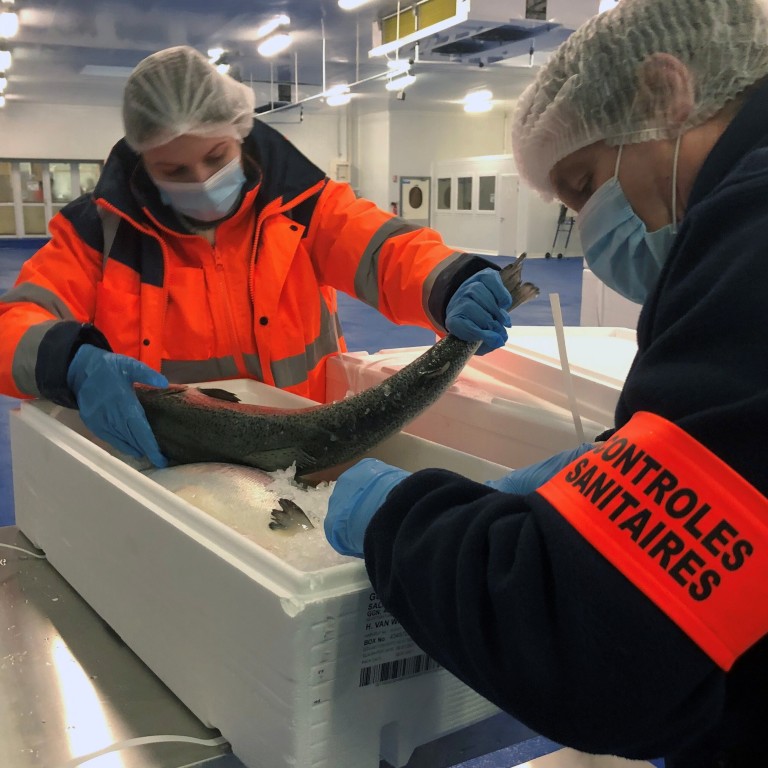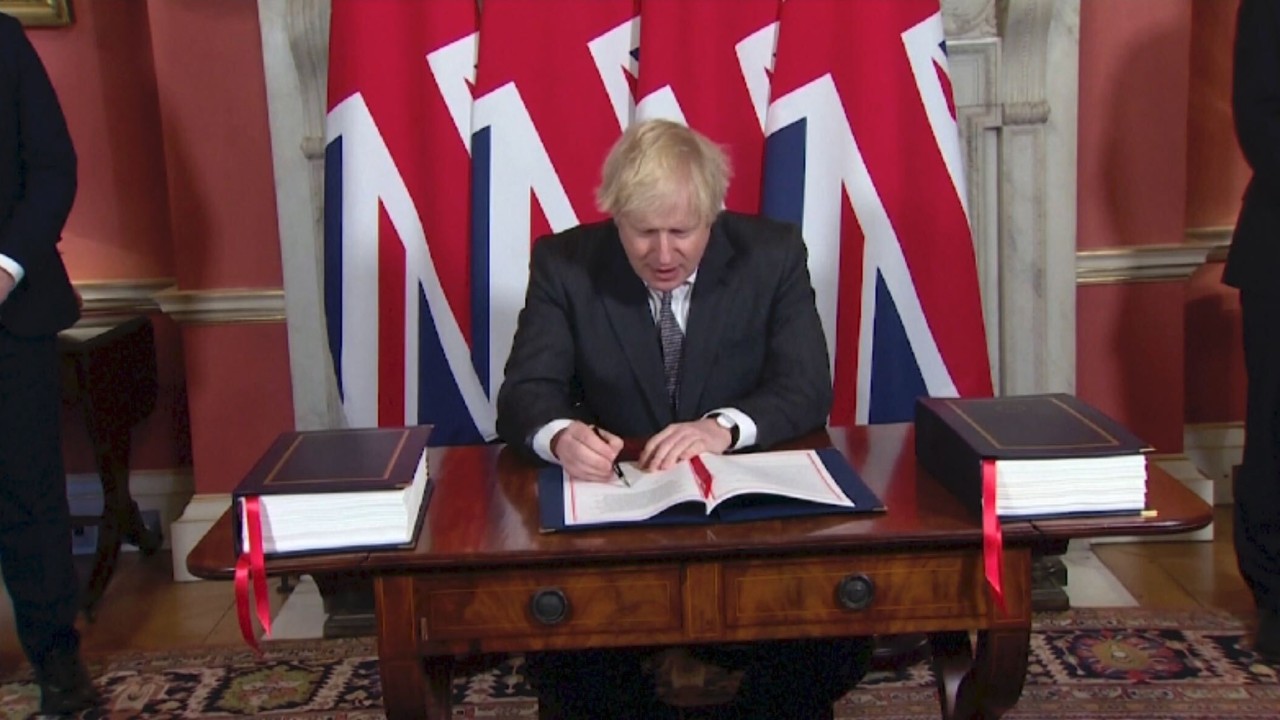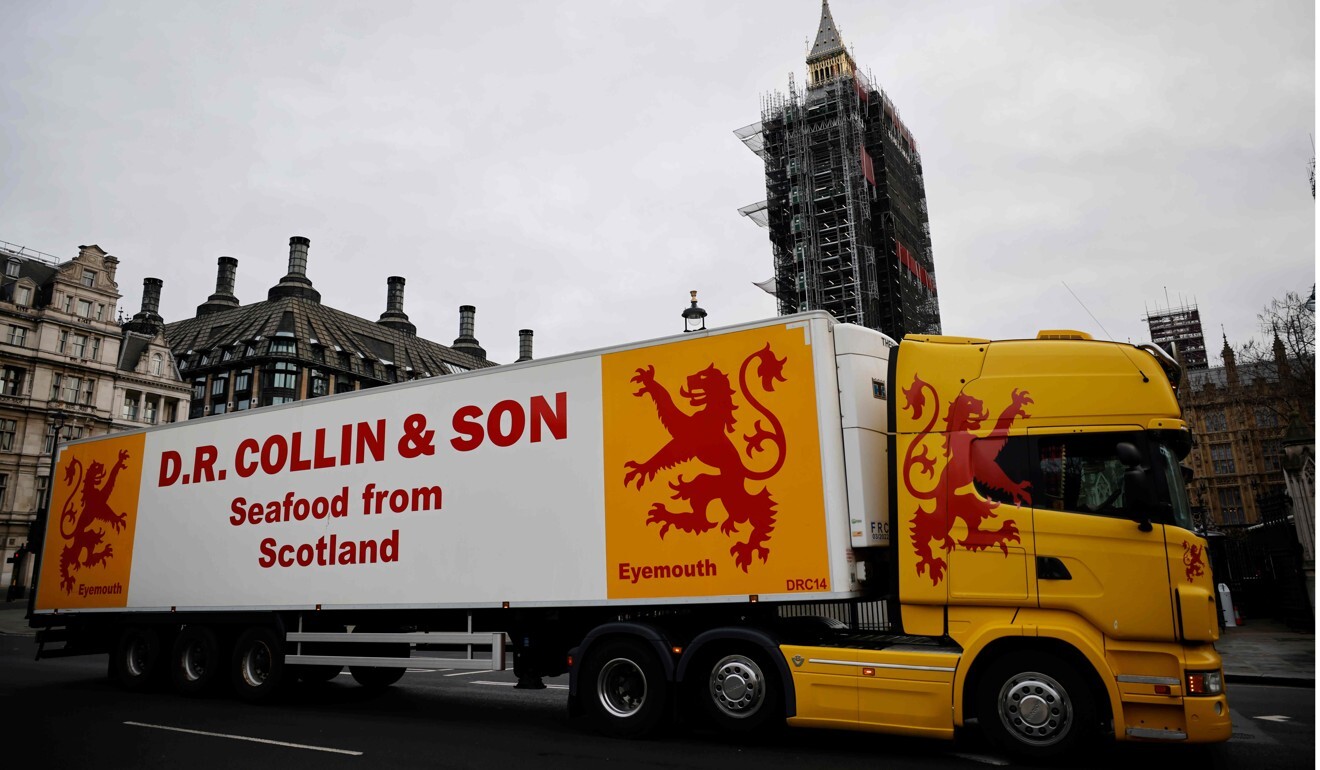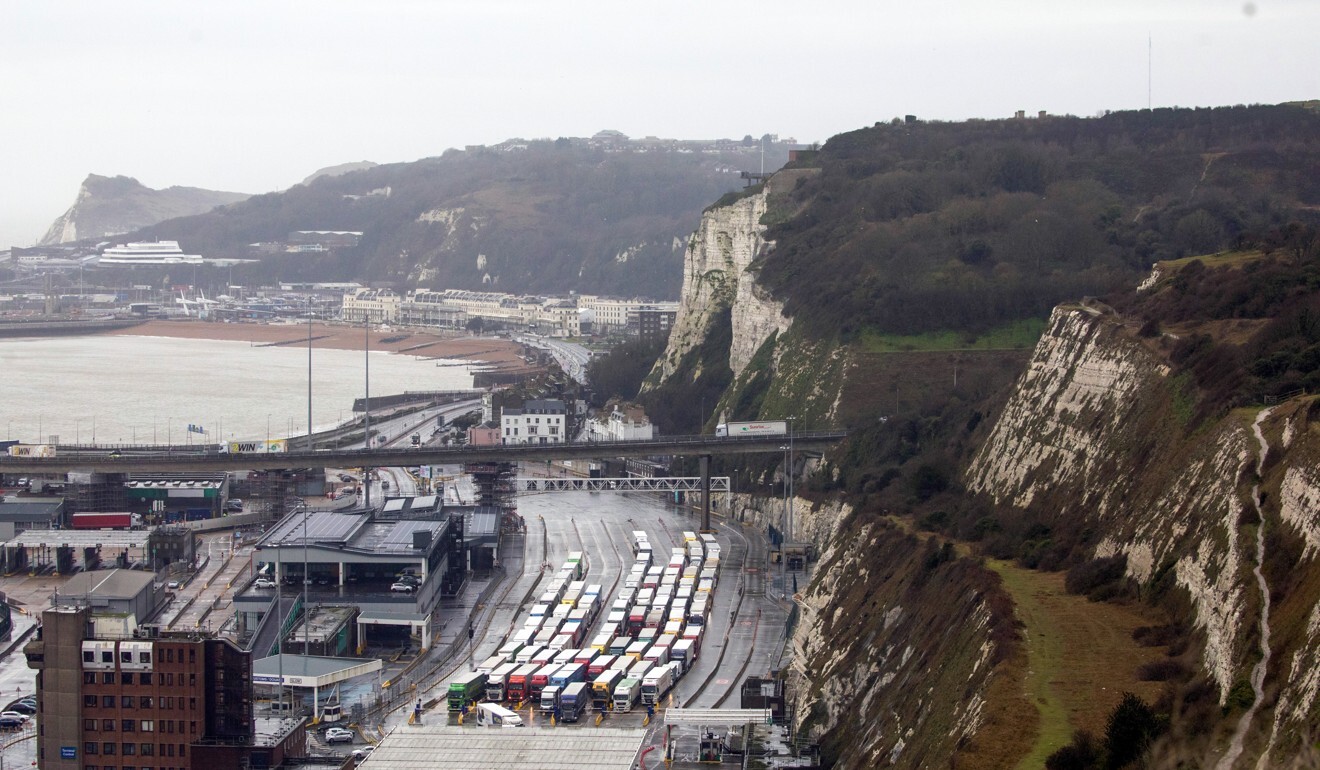
Expensive cheese, rotting seafood and other Brexit problems
- Brexit red tape and paperwork causing delays, adding to cost of UK goods
- British government encourages firms to partially move to EU, reports say
Less than a month after the UK finally left the European Union’s single market, warnings of trade disruptions by those who wanted to remain a member of the trade bloc are becoming reality for some businesses.
The new red tape of Brexit, dismissed by the government as a teething pain, is causing logistical headaches for food importers, resulting in higher prices for consumers.
That impact is so profound that even UK’s Department for International Trade has encouraged exporters to open offices in the EU to sidestep cumbersome and costly customs regulations, according to reports by The Observer newspaper and BBC.
“Bearing in mind pre-Brexit I paid nothing on EU customs and now the bill is over £150 per consignment, this cost is going to be passed on”, tweeted Daniel Lambert, a UK-based importer of wine.
“But secondly the shortage of trucks willing to make the journey is also putting huge pressure on the supply chain.”

02:53
British Prime Minister Boris Johnson signs Brexit trade deal
The Cheshire Cheese Company, which exports fine cheese gift boxes to Europe said that every £25-£30 (US$34-$41) box now requires a hygiene certificate for each one – costing a staggering £180 pounds.
“It is with great sadness we must stop sending our cheese to the EU,” the company tweeted. “Due to an oversight in the Free Trade deal it is impossible for us to send cheese to our online consumers.”
Co-founder Simon Spurrell told the BBC the company was now looking to set up a hub in France, and abandoned its plans to build a warehouse in Macclesfield in the north of England that would have employed 30 people. He said he was advised to do this by an official from the Department for International Trade.
Prime Minister Boris Johnson’s government reached a last-minute deal on Christmas Eve with Brussels on an EU-UK Trade Cooperation Agreement, avoiding an immediate and damaging crash-out with full tariffs.
‘Brexit hour marks an amazing moment’ for Britain, says Boris Johnson
But at 1,200 pages, it gave the UK Parliament little time to properly scrutinise it. The agreement also still needs to be approved by the European Parliament.
The first cries of “betrayal” came from the UK fishing industry, especially the high-end speciality seafood suppliers. Last week, Scottish seafood exporters drove their trucks to Westminster to protest having to leave their scallops and langoustines to rot in port. They were promptly fined £200 each for breaking Covid-19 restrictions.

Exporters need to complete seven documents just to send a single truck of goods across the English Channel. Each shipment requires a catch certificate, customs export declaration, health certificate, endangered species permit, common health entry document, storage document and a processing statement.
The fishing community had been keen supporters of Brexit with the promise they could take back control of the waters around the UK. The government has rushed through a £23 million rescue package for the industry.
Brexit: Scotland’s SNP demands compensation from UK government
More than 100 well-known music personalities signed an open letter, organised by the Incorporated Society of Musicians and published in The Times. “British musicians, dancers, actors and their support staff have been shamefully failed by their government,” it said. “The deal done with the EU has a gaping hole where the promised free movement for musicians should be.”

Trade experts said customs checks at borders, and a mountain of new paperwork was the new reality.
“The crucial point, unsurprisingly being avoided or misrepresented by the government and by Brexiteers more generally, is that this isn’t just a matter of ‘teething problems’ and it isn’t simply because Johnson agreed a ‘bad deal’,” Chris Grey, an emeritus professor at Royal Holloway, University of London, wrote in a blog. “It is true that, had there been more time to prepare, some of the problems of conforming with the new situation could have been dealt with. But that would only have made the consequences of Brexit less visible and less newsworthy. It wouldn’t have changed the underlying reality of there being new barriers to trade.”
Brexit: UK warns of ‘bumpy’ transition, despite trade deal with EU
He warned of what he sees as a “long Brexit” that will take years to sort out, if ever.
So far the best news for Downing Street was the Japanese carmaker Nissan’s decision not to pull its manufacturing plant from Sunderland as it had threatened to do if there wasn’t an agreement on tariffs.
Northern Ireland Secretary Brandon Lewis also tried to sound positive over the new customs border in the Irish Sea province that has the advantage of remaining in the EU single market.
“The protocol means that as part of the UK, Northern Ireland is going to have this unique competitive advantage in the world,” Lewis said on the BBC’s Question Time.
“Northern Ireland has the ability to trade in and as part of the United Kingdom, as well as through the single market with the EU.”
Brexit critics were quick to point out this was an admission that leaving the EU would make the rest of the country poorer.
Exporters and road haulage companies were looking for alternative routes to save time. Shipping from Ireland’s Rosslare port to Cherbourg in France rose by 500 per cent in the first weeks of January as hauliers sidestepped the faster land bridge route across England to avoid red tape.
“If you speak to companies, if you talk to hauliers, no one had time to actually look at that deal,” Anna Jerzewska, founder of the trade consultancy Trade and Borders, said in a Financial Times podcast.
“The paperwork is complicated, especially if it is around health certificates for plant and animal products. That can become simpler over time as we have more agents and more capacity but leaving the single market and leaving the customs union means that some businesses will no longer be possible, such as the UK being a distribution hub.”
Another trade expert David Henig, from the European Centre For International Political Economy, said “as yet we aren’t able to have a serious conversation about what to do next”.
Rare win for Boris Johnson – but Brexit storm hasn’t passed
“Other trade deals won’t make up for the losses,” Henig tweeted. “So take the hit? Change policy towards the EU? Encourage as many as possible to come from Hong Kong?”
Around 60 other trade deals have been signed, but experts say they mainly rolled over the trading terms the UK enjoyed under EU trade deals with other countries.

